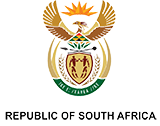Improving education
Education is our investment in the future of our country. Our objective is to provide quality education to young people that will prepare them for current challenges and future opportunities.
The pandemic has highlighted the digital divide in society, particularly regarding the adoption of technologies for learning and teaching. We must intensify efforts to ensure connectivity and equitable access to data. This calls for stronger public-private partnerships to ensure that we have the necessary resources to help our learners.
This year, government plans to finalise the Comprehensive Student Funding Model for higher education, particularly for students who fall outside current NSFAS criteria; reaching those who are known as the ‘missing middle’.
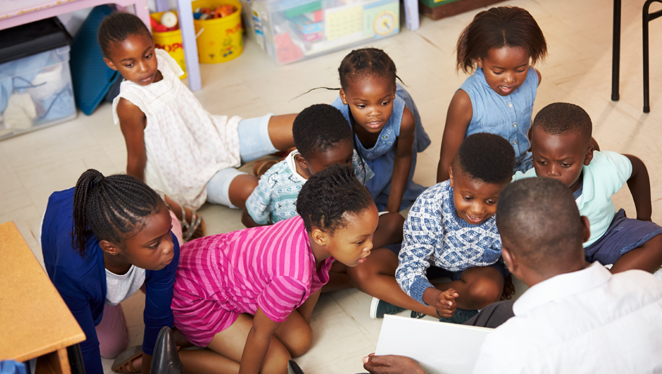
Leaving no one behind means improving the quality of our education system. Despite the huge disruption caused to the academic year by the pandemic, we have made progress towards achieving this objective.
President Cyril Ramaphosa
Achievement highlights
More than 90% of TVET college students funded through the National Student Financial Aid Scheme
9.6 million learners received daily nutritious meals
97% of higher learning education sites are zero-rated, enabling free electronic access to lectures and resources
R3 billion committed to improving public libraries over the next two years
Government, together with the Sanitation Appropriate for Education Initiative, has built 55 000 appropriate toilets with resources from the public and private sector
Early childhood development
Ensuring access to quality early childhood learning and development (ECD) services for children under five is an investment in our country’s future. As the foundation for healthy cognitive development and future learning capabilities, ECD services form part of a long‐term solution to reducing inequality.
According to the 2022 Census findings released on 10 October 2023, six out of ten children aged 0-4 years had access to some form of early childhood development (ECD) programme.
The transfer of responsibility for ECD into the Department of Basic Education will help us manage the transition from early childhood development into pre-school and into schooling.
The Department of Basic Education is working to pare down and simplify the requirements for early childhood learning and development centres as part of a long-term solution to reducing inequality.
The streamlined requirements will enable ECD centres to access support and enable thousands more to receive subsidies from goverment.
This will ensure that we provide comprehensive, responsive, integrated ECD services throughout the country, which will best support children from an early age.
To help ECD services recover from the loss of income brought on by COVID-19, relief funding is being made available through the Presidential Employment Stimulus. The relief aid aims to minimise the loss of income, support continued operation and reduce the risk of permanent closure.
In the media
Move to migrate early childhood development to DBE applauded
Education experts have applauded government following its decision to take over the management of early childhood development (ECD) services from the department of social development (DSD) to the department of basic education (DBE) by April 2022.
The Citizen
South Africa making progress towards early childhood development goals, education officials say
Ahead of a possible tabling of the new Bela Bill in Parliament after the 2024 elections, the Department of Basic Education says it is ‘delivering its ECD priorities and social justice principles’.
www.dailymaverick.co.za
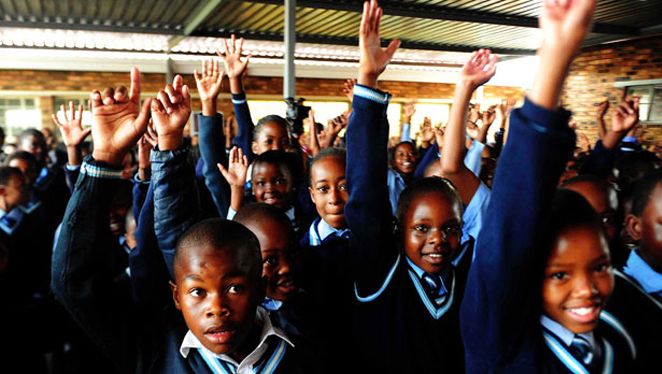
Recovering lost learning
The Department of Basic Education (DBE) is implementing a three-year recovery plan (2022-2024) in response to the impact of the COVID-19 pandemic on learners. The plan aims to gradually recover learning losses while building on the foundational content required for future learning.
Annual teaching plans (ATPs) have been developed that focus on the fundamental content knowledge, skills, attitudes and values required in each grade and subject, to ensure deep learning and content mastery.
To support the recovery plan, the Basic Education Employment Initiative (BEEI) has given employment opportunities to 300 000 youth at various public schools across the country to strengthen teaching and capacity.
As an example of the impact of the Basic Education Employment Initiative, the education NGO Funda Wande selected, trained and mentored teachers’ assistants in 120 schools in Limpopo. By term three, grade two pupils in supported schools were about 1.25 years ahead of control schools in both literacy and numeracy.
This forms part of President Cyril Ramaphosa’s Economic Reconstruction and Recovery Plan, which aims to boost education and skills development to support economic growth.
Progress on education recovery
600K
Young people employed in 23 000 schools
242K
Education assistants who support teachers and learners
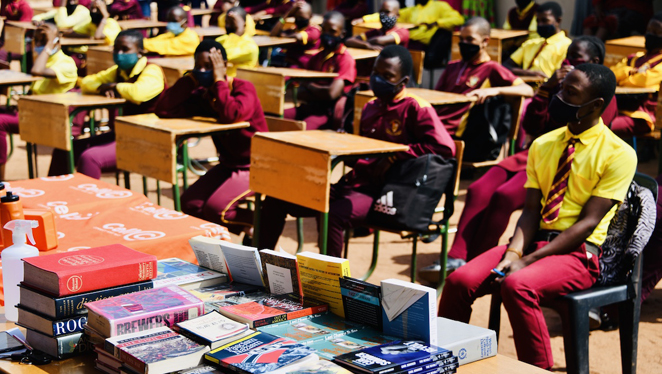
Supporting reading
The Read to Lead Campaign continues to promote a culture of reading in schools, while encouraging parents to read story books to their children at home.
The Primary School Reading Improvement Programme is aimed at improving literacy and reading in Grades 1-6. The programme upskills educators on how to teach reading for meaning in the early grades.
Teachers trained in reading instruction
3 384
Foundation phase teachers
3 219
Intermediate phase teachers
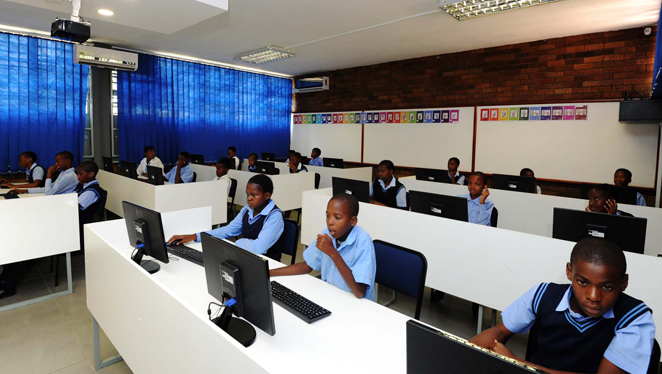
Facilities like the cyberlab at the Dominican School for the Deaf in Pretoria bring digital technology to disadvantaged communities.
New subjects
The Department of Basic Education is making headway with the national rollout of coding and robotics from Grade R to Grade 9. These subjects will prepare learners for the careers of the future while strengthening important problem-solving and critical-thinking skills.
A range of other new subjects have been implemented in schools over the last five years. Many aim to help school-leaving pupils who will not necessarily complete Grade 12 or enter university.
Here are the new subjects introduced in schools in the last 5 years
— Dep. Basic Education (@DBE_SA) January 8, 2022
@ReginahMhaule @HubertMweli @ElijahMhlanga @dbetvnews pic.twitter.com/mUoI3LC7OA
In the media
Top Eastern Cape pupil gets 7 distinctions, off to study actuarial science
Surrounding yourself with ambitious and focused peers is a must if you want to achieve excellent results in matric, top Eastern Cape pupil Laai'qah Bedford has advised.
News24
Coding and robotics in South African schools get another push
The introduction of coding and robotics to South African schools has been on the cards for a few years now. Some schools didn’t wait around for a plan from the government and have already implemented the subjects their own way. Hopefully, the recently announced partnership between Oxford University Press and Resolute Education will bring the new subjects to more schools in the country.
www.stuff.co.za
